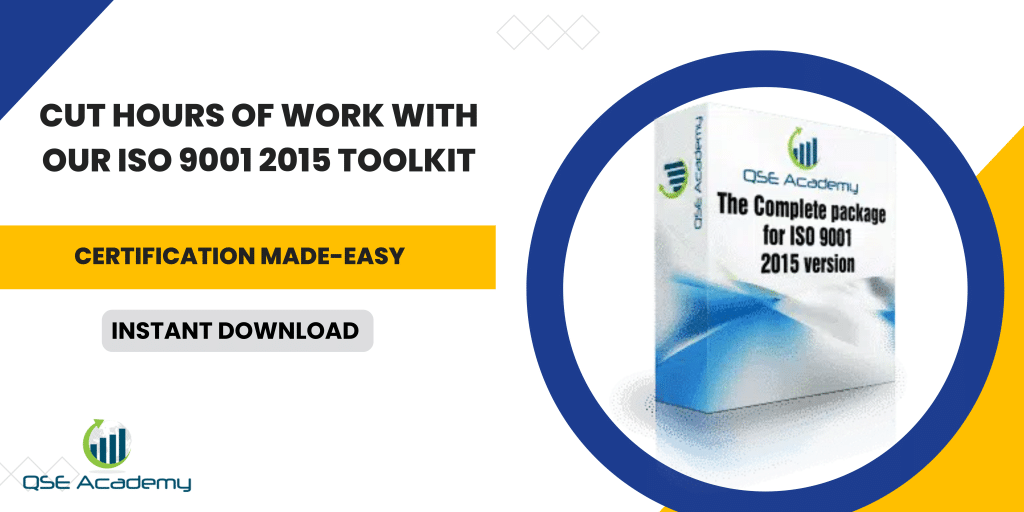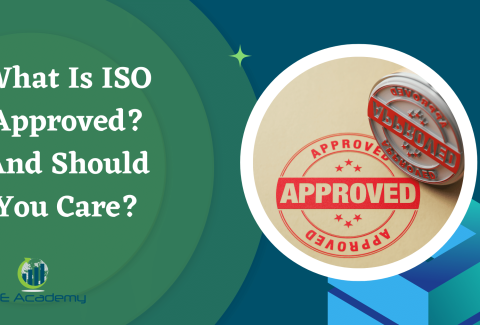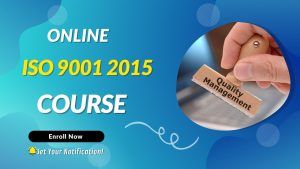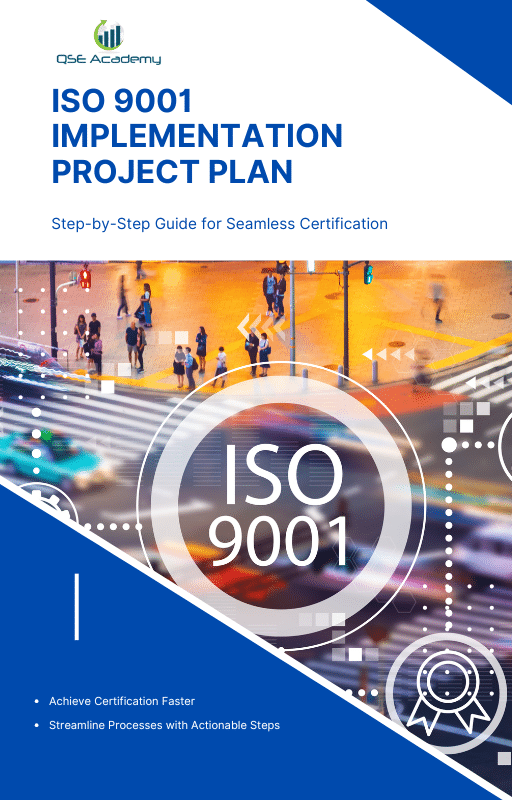Is ISO 9001 still relevant?
Last Updated on October 13, 2025 by Hafsa J.
Is ISO 9001 still relevant?
Let’s be honest—things in the business world move fast. New technologies, evolving customer demands, and ever-changing market conditions make it feel like what’s cutting-edge today could be outdated tomorrow. With all this rapid change, it’s natural to wonder: is ISO 9001 still relevant?
ISO 9001 has been the gold standard for quality management systems for decades, helping businesses across the globe improve efficiency, meet customer expectations, and build trust. But in today’s fast-paced, tech-driven world, some people question whether this tried-and-true standard can keep up.
Here’s the thing: ISO 9001 is still very much alive and kicking. It’s designed to adapt, evolve, and remain practical in a modern business environment. In this article, we’re diving into why ISO 9001 is still relevant, how it continues to bring value to organizations, and why it might just be more important than ever in helping businesses succeed. Let’s take a closer look at how this timeless standard keeps standing the test of time!
A Quick Overview of ISO 9001
Before diving into whether ISO 9001 is still relevant, let’s start with the basics. What exactly is ISO 9001, and why has it been such a cornerstone in the world of quality management for so long?
ISO 9001 is an internationally recognized standard for quality management systems (QMS). In simple terms, it’s a framework that helps organizations deliver consistent quality, meet customer expectations, and continuously improve their processes. It’s part of the ISO 9000 family of standards but stands out because it’s the one businesses can get certified to—and that certification holds a lot of weight in the global market.
What makes ISO 9001 special is its universal appeal. It’s not just for manufacturers or large corporations—it’s designed for any organization, regardless of size, industry, or location. From tech startups to healthcare providers to government agencies, ISO 9001 can work for anyone looking to streamline operations and boost customer satisfaction.
Over the years, ISO 9001 has evolved to stay relevant. The most recent version, ISO 9001:2015, introduced a stronger focus on risk-based thinking, aligning quality management with strategic goals, and enhancing flexibility to fit today’s fast-changing business environments. These updates were designed to ensure that ISO 9001 is still relevant and practical for modern businesses navigating increasingly complex challenges.
In short, ISO 9001 provides a solid foundation for organizations to build on. It’s not about imposing rigid rules but rather offering a framework that can adapt to different needs. Whether your focus is efficiency, customer satisfaction, or staying competitive, ISO 9001 continues to deliver value across industries. But why do some people question its relevance? Let’s dig deeper.
Why Some People Question If ISO 9001 is Still Relevant
It’s a fair question—why do some people wonder if ISO 9001 is still relevant in today’s business environment? With new standards, advanced technologies, and shifting business priorities, it’s easy to see why doubts might creep in. Let’s explore a few reasons behind this skepticism.
1. The Rise of New Standards and Technologies
One reason some question ISO 9001’s relevance is the growing number of specialized standards and cutting-edge technologies. For example, industry-specific certifications like IATF 16949 (for automotive) or ISO 27001 (for information security) have gained traction in recent years. These standards cater to specific needs that ISO 9001 might not address directly.
Then there’s the impact of technology. Businesses today are adopting AI-driven systems, automated workflows, and advanced data analytics. With all these innovations, some might assume that ISO 9001’s principles, developed decades ago, are no longer a perfect fit for modern challenges.
But here’s the thing—ISO 9001 isn’t designed to compete with new standards or technologies. Instead, it works alongside them, providing a flexible framework that businesses can adapt to support their unique goals.
2. Misconceptions About ISO 9001
Another reason some question whether ISO 9001 is still relevant is due to common misconceptions about what the standard is—and isn’t.
Some people mistakenly believe ISO 9001 is just a bunch of paperwork, focusing more on documentation than actual results. Others think it’s too rigid or outdated for businesses that thrive on creativity and agility.
In reality, ISO 9001 emphasizes continuous improvement, risk-based thinking, and customer focus—all principles that are timeless and highly relevant, regardless of your industry. The key is understanding how to use ISO 9001 as a flexible tool, not a box to tick.
3. The Ever-Changing Business Landscape
The speed of change in today’s world is another reason people question ISO 9001’s relevance. Businesses are dealing with new challenges like remote work, supply chain disruptions, and shifting customer expectations. Some wonder if a standardized framework like ISO 9001 can keep up.
But the truth is, ISO 9001 was designed to evolve. The 2015 revision, for example, introduced risk-based thinking and a stronger alignment with business strategy—updates that reflect modern needs. Its adaptability is precisely why ISO 9001 is still relevant, even in an ever-changing landscape.
Despite these doubts, the reality is that ISO 9001 has proven its staying power. It’s not perfect for every situation, but its core principles—like focusing on quality, improving processes, and meeting customer needs—are as important today as ever. Next, let’s talk about why ISO 9001 continues to hold its ground and deliver value in the modern business world.
Why ISO 9001 is Still Relevant Today
Despite the doubts and misconceptions, there’s no denying that ISO 9001 is still relevant in today’s fast-paced and evolving business environment. Its adaptability, focus on universal principles, and ability to address modern challenges make it a cornerstone for organizations aiming to improve quality and succeed in competitive markets. Let’s explore why this standard continues to stand the test of time.
1. Universal Principles That Never Go Out of Style
One of the biggest reasons ISO 9001 is still relevant is its foundation on timeless principles. Concepts like customer focus, leadership, and continuous improvement are central to ISO 9001, and these aren’t going away anytime soon.
No matter the size or type of your business, these principles provide a roadmap for achieving better performance. Customers will always expect consistent quality, and companies will always need efficient processes. ISO 9001 offers a framework that helps businesses deliver on these expectations, making it just as relevant now as it was decades ago.
2. Adaptability to Modern Challenges
ISO 9001 isn’t stuck in the past—it has evolved to meet the demands of modern businesses. The 2015 revision introduced key updates like risk-based thinking and alignment with strategic goals, ensuring the standard stays practical in today’s world.
Risk-based thinking, for example, helps organizations identify and manage potential challenges proactively—a skill that’s more important than ever in an uncertain and fast-changing environment. Whether it’s navigating supply chain issues, adopting new technologies, or meeting shifting customer expectations, ISO 9001 provides the flexibility businesses need to adapt and thrive.
3. A Competitive Edge in a Global Market
In a globalized world, businesses need to stand out to succeed. ISO 9001 certification remains a powerful way to build trust and credibility with customers, partners, and stakeholders. It’s an internationally recognized mark of quality that tells the world your business takes its processes seriously.
For companies looking to enter new markets or secure big contracts, ISO 9001 certification can be a game-changer. Many organizations, particularly in manufacturing and supply chains, require their partners to have ISO 9001 certification. This means being certified can open doors to opportunities that might otherwise be out of reach.
4. Driving Continuous Improvement and Innovation
One of the most valuable aspects of ISO 9001 is its focus on continuous improvement. The standard encourages businesses to regularly evaluate their processes, learn from their mistakes, and find new ways to do things better.
This commitment to improvement doesn’t just help businesses stay efficient—it fosters innovation. By constantly seeking better solutions, businesses can stay ahead of the curve and remain competitive in even the most challenging markets.
At its core, ISO 9001 provides a flexible framework that adapts to businesses’ unique needs and challenges. Whether you’re a small startup navigating your first growth phase or a global corporation managing complex operations, the principles of ISO 9001 are as relevant today as ever. In the next section, we’ll explore some of the real-world benefits of adopting ISO 9001 in today’s business landscape.
Real-World Benefits of ISO 9001
We’ve talked about why ISO 9001 is still relevant, but let’s get into the real-world benefits that businesses experience when they implement this standard. It’s not just about compliance or certification—it’s about making tangible improvements that help your organization thrive. Here are some of the top ways ISO 9001 delivers value today.
1. Enhanced Efficiency and Cost Savings
One of the first things businesses notice after implementing ISO 9001 is a boost in efficiency. By focusing on streamlining processes and reducing waste, ISO 9001 helps organizations save time, money, and resources.
For example, let’s say your company has been dealing with repeated errors in production. When you follow ISO 9001’s framework, you identify the root cause, fix the issue, and prevent it from happening again. This saves you the cost of rework and wasted materials. Whether you’re in manufacturing, services, or retail, improved efficiency is a universal win—and a key reason ISO 9001 is still relevant.
2. Better Customer Satisfaction
Happy customers are the foundation of any successful business, and ISO 9001 is designed with customer satisfaction in mind. By ensuring your processes consistently meet or exceed customer expectations, the standard helps you build trust and loyalty.
Think about it: when your products or services are reliable, customers are more likely to come back—and recommend you to others. In a world where customer expectations are higher than ever, this focus on quality is another reason ISO 9001 is still relevant today.
3. Improved Risk Management
In today’s fast-paced business environment, risks can come from anywhere—supply chain disruptions, economic uncertainty, or even cybersecurity threats. ISO 9001’s emphasis on risk-based thinking helps organizations identify potential challenges early and put plans in place to manage them.
By being proactive instead of reactive, businesses can minimize disruptions, protect their reputation, and stay ahead of competitors. This ability to navigate uncertainty is yet another way ISO 9001 proves its value in the modern world.
4. Greater Employee Engagement
Implementing ISO 9001 isn’t just about improving systems—it’s also about empowering your team. When employees clearly understand their roles, responsibilities, and how their work contributes to the company’s success, they’re more engaged and motivated.
ISO 9001 encourages organizations to involve employees in the improvement process, fostering a sense of ownership and pride in their work. A motivated team leads to higher productivity, lower turnover, and a stronger workplace culture, making it another reason ISO 9001 is still relevant.
5. Building a Culture of Continuous Improvement
One of the biggest long-term benefits of ISO 9001 is its focus on continuous improvement. The standard encourages organizations to regularly assess their processes, learn from their mistakes, and adapt to changing conditions.
This mindset doesn’t just help businesses stay efficient—it drives innovation. By constantly seeking better ways to work, businesses can remain competitive and agile in a fast-changing world.
From saving money to satisfying customers to empowering employees, the benefits of ISO 9001 are clear and tangible. These are the kinds of results that show why ISO 9001 is still relevant, even in a business world that’s constantly evolving. Next, let’s take a closer look at the industries where this standard continues to shine.
Industries Where ISO 9001 Remains Critical
While ISO 9001 is designed to be flexible and applies to virtually any organization, there are certain industries where it continues to be an absolute game-changer. If you’re wondering why ISO 9001 is still relevant, just look at how these industries rely on the standard to maintain quality, build trust, and stay competitive.
1. Manufacturing
Manufacturing has always been a core industry for ISO 9001, and it’s easy to see why. In this field, consistency and precision are non-negotiable. ISO 9001 provides manufacturers with a framework to streamline production, reduce defects, and ensure that products meet customer expectations every time.
For example, if you’re producing automotive parts or consumer electronics, having ISO 9001 certification not only proves that your processes are reliable but also helps you build stronger relationships with clients and suppliers. The demand for quality products isn’t going anywhere, which is why ISO 9001 is still relevant in manufacturing.
2. Healthcare
In healthcare, quality isn’t just important—it can be a matter of life and death. Hospitals, clinics, and medical device manufacturers rely on ISO 9001 to ensure patient safety, regulatory compliance, and the highest standards of care.
For instance, medical device companies often use ISO 9001 as a foundation for compliance with more specific standards like ISO 13485. This shows how the adaptability of ISO 9001 keeps it relevant, even in highly specialized fields like healthcare.
3. Logistics and Supply Chain Management
In today’s global economy, supply chains are more complex than ever. Delays, inefficiencies, and miscommunications can quickly snowball into major problems. That’s why ISO 9001 is invaluable for logistics companies and supply chain managers—it helps create processes that ensure timely delivery, reduce waste, and improve coordination.
Whether it’s a freight company ensuring on-time shipments or a distributor managing inventory efficiently, ISO 9001 helps businesses meet customer demands in a reliable and efficient way. This is another clear example of why ISO 9001 is still relevant in a world where supply chain efficiency is critical.
4. Service Industries
ISO 9001 isn’t just for products—it’s just as relevant for service-based businesses. From hospitality to education to financial services, organizations use ISO 9001 to ensure consistent service delivery and meet customer expectations.
Take a hotel chain, for example. ISO 9001 helps them standardize operations across locations, ensuring that every guest enjoys the same high-quality experience. In the service industry, where customer satisfaction is everything, ISO 9001 remains a powerful tool for success.
5. Technology and Software Development
With the tech industry evolving at lightning speed, some might wonder if ISO 9001 can keep up. The answer? Absolutely. Many technology companies use ISO 9001 to improve their development processes, ensure consistent quality, and manage risks effectively.
For example, a software company might use ISO 9001 to streamline project workflows, reduce bugs in the final product, and improve customer satisfaction. By aligning quality management with business goals, ISO 9001 proves its relevance in the fast-paced world of technology.
ISO 9001’s versatility and adaptability are what make it indispensable across such a wide range of industries. Whether you’re building cars, developing apps, or running a hospital, the principles of ISO 9001 remain a reliable foundation for delivering quality and driving success. These real-world applications show why ISO 9001 is still relevant, no matter how much the business world evolves.
In the next section, let’s explore how ISO 9001 is likely to evolve in the future to meet new challenges and opportunities.
What the Future Holds for ISO 9001
As businesses evolve, so do the challenges they face. With the rise of new technologies, shifting customer expectations, and global priorities like sustainability, it’s natural to wonder how ISO 9001 will adapt. So, is ISO 9001 still relevant in the future? The short answer is yes—and here’s why.
1. A Standard That Evolves with the Times
One of the reasons ISO 9001 has remained relevant for so long is its ability to adapt. The standard has undergone several revisions over the years to stay aligned with modern business practices. For example, the 2015 revision introduced a stronger focus on risk-based thinking, strategic alignment, and leadership.
As new challenges arise, ISO 9001 will likely continue to evolve. Future updates could incorporate even more emphasis on emerging trends like artificial intelligence, automation, and digital transformation, ensuring the standard remains practical and valuable for businesses navigating rapid change.
2. Embracing Sustainability Goals
In today’s world, sustainability is no longer optional—it’s a necessity. Customers, governments, and stakeholders increasingly expect businesses to prioritize environmental and social responsibility. While ISO 9001 is primarily focused on quality management, its principles can support sustainability initiatives.
For instance, reducing waste, improving efficiency, and aligning processes with organizational goals are all part of ISO 9001—and these align perfectly with sustainability objectives. Moving forward, ISO 9001 may place even more emphasis on how businesses can integrate quality and sustainability, keeping the standard highly relevant in a world focused on creating a greener future.
3. Supporting Innovation and Resilience
As industries become more competitive, innovation and resilience are essential for survival. ISO 9001’s framework for continuous improvement encourages businesses to stay agile, identify opportunities, and adapt to changing market conditions.
Future revisions of ISO 9001 could further enhance its ability to drive innovation. For example, it may include more guidance on integrating technology into processes, fostering creativity, or managing disruption in supply chains. These updates would ensure ISO 9001 remains a valuable tool for helping businesses thrive in unpredictable environments.
4. Strengthening Global Collaboration
In an increasingly interconnected world, businesses rely on international collaboration more than ever. ISO 9001’s role as a globally recognized standard makes it a powerful tool for ensuring consistency and building trust across borders.
As global trade continues to grow, ISO 9001 will likely become even more critical. Businesses that adhere to the standard demonstrate their commitment to quality, which helps them stand out in competitive markets. This is one of the many reasons why ISO 9001 is still relevant and will remain so in the years to come.
5. Adapting to Customer-Centric Business Models
Customers are at the heart of every successful business, and ISO 9001’s focus on customer satisfaction is one of its enduring strengths. As businesses increasingly adopt customer-centric models, ISO 9001’s principles will remain highly applicable.
Future updates to the standard might expand on customer engagement strategies, feedback mechanisms, or real-time data analysis, helping businesses stay ahead in meeting and exceeding customer expectations.
ISO 9001’s ability to evolve and adapt is what has kept it relevant for decades, and that’s not going to change anytime soon. Whether it’s addressing technological advancements, supporting sustainability, or fostering global collaboration, ISO 9001 is poised to remain a cornerstone of quality management well into the future.
These possibilities reinforce why ISO 9001 is still relevant, not just for today’s challenges but also for the opportunities of tomorrow. In the next section, let’s summarize the key points and leave you with a clear answer to the big question: is ISO 9001 still worth it? (Spoiler alert: absolutely.)
Conclusion: Is ISO 9001 Still Relevant? Absolutely!
So, let’s answer the big question: is ISO 9001 still relevant? Without a doubt, yes. Whether you’re running a small business or managing a global enterprise, ISO 9001 continues to be one of the most effective tools for improving quality, satisfying customers, and staying competitive.
Its universal principles—like customer focus, risk-based thinking, and continuous improvement—make it timeless. And because the standard evolves to meet modern challenges, it stays adaptable to industries as they grow and change. From embracing new technologies to aligning with sustainability goals, ISO 9001 has proven it’s more than capable of keeping up with today’s fast-paced world.
Beyond its flexibility, ISO 9001 delivers real, tangible benefits. It helps businesses streamline processes, reduce waste, and foster innovation. It also builds trust with customers and opens doors to new markets through its globally recognized certification. These aren’t just perks—they’re the kinds of advantages that businesses need to thrive in an ever-changing landscape.
The fact that industries like manufacturing, healthcare, and technology still rely on ISO 9001 underscores why it remains relevant. And as we look to the future, its role in driving quality, resilience, and global collaboration will only grow stronger.
In the end, ISO 9001 isn’t just about compliance or ticking boxes. It’s a proven framework that helps businesses become better, stronger, and more prepared for whatever comes next. So, if you’ve been wondering whether ISO 9001 is still relevant, the answer is clear: it’s not just relevant—it’s essential.
Now is the perfect time to take a fresh look at ISO 9001 and see how it can help your organization reach its full potential. Whether you’re new to the standard or looking to make the most of your existing system, embracing ISO 9001 is a step toward excellence. And who doesn’t want that?
Ready to move from ISO 9001 theory to implementation?
Get the exact tools you need to write your documentation, train your team, map your processes, and pass your audit—without wasted time or guesswork.

make ISO standards less intimidating and more approachable for everyone.
Whether it’s ISO 9001, ISO 22000, or the cosmetics-focused ISO 22716, I’ve spent my career
turning complex jargon into clear, actionable steps that businesses can actually use.
I’m not here to call myself an expert—I prefer “enthusiast” because I truly love what I do.
There’s something incredibly rewarding about helping people navigate food safety and quality management systems
in a way that feels simple, practical, and even enjoyable.
When I’m not writing about standards, you’ll probably find me playing Piano 🎹, connecting with people, or diving into my next big project💫.
I’m an engineer specialized in the food and agricultural industry
I have a Master’s in QHSE management and over 12 years of experience as a Quality Manager
I’ve helped more than 15 companies implement ISO 9001, ISO 22000, ISO 22716, GMP, and other standards
My clients include food producers, cosmetics manufacturers, laboratories, and service companies
I believe quality systems should be simple, useful, and efficient.












